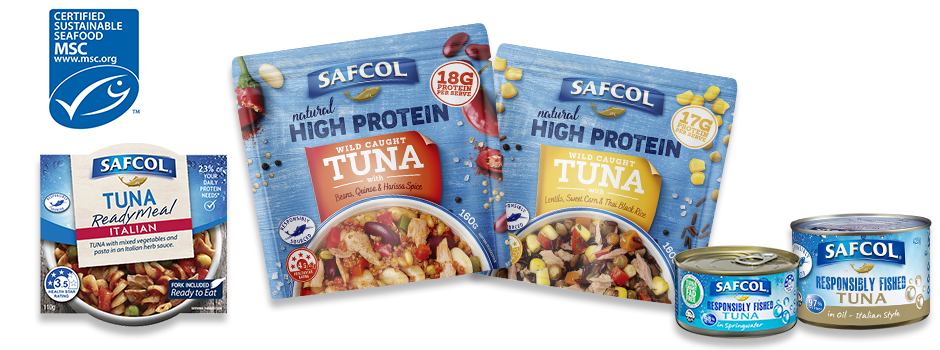The Role of Seafood in Reducing Preeclampsia Risk
Posted on : February 7, 2023
by Ashleigh Feltham Accredited Practising Dietitian and Accredited Nutritionist
The Role of Seafood in Reducing Preeclampsia Risk
As a woman, looking after your health is even more vital during pregnancy. A diet that promotes optimal wellness for both the mother and the unborn child is important for many reasons. Here, we take a look at reducing the risk of preeclampsia.
Preeclampsia is a condition involving many body systems of the mother. It is characterised by symptoms of high blood pressure and abnormally high levels of protein in the urine called proteinuria in the twentieth week of pregnancy. If proteinuria is not present, preeclampsia is characterised as a condition of high blood pressure, as well as not enough platelets in the blood, which is called thrombocytopenia. Also, impaired liver and kidney function, and excess fluids in the lungs called pulmonary oedema or disturbances to normal organ and brain function.
Omega-3 fats are essential polyunsaturated fats. This means that your body cannot create this type of fat, so it must come from diet. Omega-3 fats play many important roles in promoting optimal health, including its strong anti-inflammatory properties for brain health and psychological function. This fat may also play an essential role in reducing the risk of developing preeclampsia.
In a prospective cohort study, 1,302 women were monitored from 1996 to 2012. Researchers reported that women in the top quintile of dietary docosahexaenoic acid (DHA) omega-3 fats had a lower risk of developing preeclampsia compared with women in the lowest quintile of DHA intake. Eicosapentaenoic acid (EPA) omega-3 fat was also reported in this study to reduce the risk of developing preeclampsia. Both EPA and DHA are types of omega-3 fat commonly found in good amounts in fatty seafood like salmon, herring, mackerel and sardines.
While the mechanisms of what causes preeclampsia are not fully understood it is thought that oxidative stress and inflammation in the placenta may be two factors that contribute to the development of preeclampsia. It is predicted that the antioxidant and anti-inflammatory properties of omega-3 fats may play a protective role against the development of preeclampsia.
Vitamin D is a fat-soluble vitamin, which, like omega-3 fat, plays a role in helping the body function at its best. This includes allowing calcium to be absorbed in the body to promote an optimal immune system function. Having adequate levels of vitamin D may also play an important role in reducing the risk of preeclampsia. In a case-control study, it was found that low levels of vitamin D in the blood of both the mother and the umbilical cord were seen in women with preeclampsia compared to those women without preeclampsia.
A key factor of preeclampsia is autoimmune dysregulation. The role vitamin D plays in promoting optimal immune system function is one reason why this fat-soluble vitamin may be protective in reducing the risk of developing preeclampsia.
A food first approach to health is the best approach whenever possible. Both omega-3 fat and vitamin D are found in good quantities in seafood. One hundred grams of cooked seafood two to three times a week is recommended. Fatty fish like salmon are also low in mercury, being top-dwelling fish. Canned seafood products greatly decrease the risk of listeria.
Take home message
Omega-3 fat is an essential fat that plays important roles in promoting your health and wellbeing throughout life. During pregnancy, this polyunsaturated fat looks after the health of not only the mother, but also the unborn child, by reducing the risk of preeclampsia.

References:
- Li, S. N., Liu, Y. H., Luo, Z. Y., Cui, Y. F., Cao, Y., Fu, W. J., Dou, W. F., Duan, D. D., Zhao, X. L., Chen, Y. M., Lyu, Q. J., Chen, Q. S., & Zeng, F. F. (2021). The association between dietary fatty acid intake and the risk of developing preeclampsia: a matched case-control study. Scientific reports, 11(1), 4048.
- Khan KS, Wojdyla D, Say L, Gülmezoglu AM, Van Look PF. WHO analysis of causes of maternal death: a systematic review. Lancet. 2006;367:1066–1074. doi: 10.1016/s0140-6736(06)68397-9.
- Bakouei F, Delavar MA, Mashayekh-Amiri S, Esmailzadeh S, Taheri Z. Efficacy of n-3 fatty acids supplementation on the prevention of pregnancy induced-hypertension or preeclampsia: a systematic review and meta-analysis, Taiwan. J. Obstet. Gynecol. 2020;59:8–15. doi: 10.1016/j.tjog.2019.11.002.
- Yusuf H, Subih HS, Obeidat BS, Sharkas G. Associations of macro and micronutrients and antioxidants intakes with preeclampsia: a case-control study in Jordanian pregnant women. Nutr. Metab. Cardiovasc. Dis. 2019;29:458–466. doi: 10.1016/j.numecd.2019.01.008.
- Nandi A, Wadhwani N, Randhir K, Wagh G, Joshi SR. Association of vitamin D with fatty acids in pregnancy. Prostaglandins Leukot. Essent. Fatty Acids. 2020;157:102030. doi: 10.1016/j.plefa.2019.102030.
- Arvizu M, et al. Fat intake during pregnancy and risk of preeclampsia: a prospective cohort study in Denmark. Eur. J. Clin. Nutr. 2019;73:1040–1048. doi: 10.1038/s41430-018-0290-z.
- Jones ML, Mark PJ, Mori TA, Keelan JA, Waddell BJ. Maternal dietary omega-3 fatty acid supplementation reduces placental oxidative stress and increases fetal and placental growth in the rat. Biol. Reprod. 2013;88:37. doi: 10.1095/biolreprod.112.103754.
- Burton GJ, Jauniaux E. Oxidative stress. Best Pract. Res. Clin. Obstet. Gynaecol. 2011;25:287–299. doi: 10.1016/j.bpobgyn.2010.10.016.





